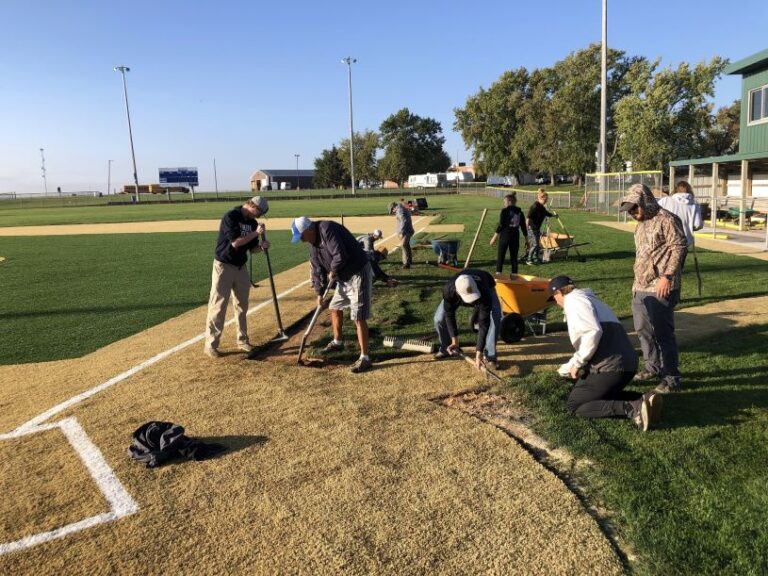The Sports Turf Management associate degree program at Southeast Technical College (STC) in Sioux Falls, South Dakota, teaches students how to work with specialized grounds maintenance equipment, and provides a background in soils, irrigation, fertilization, landscape construction, plant identification, pest management, arboriculture and more.
“The unique thing about the Sports Turf Management program at Southeast Tech is that it’s a two-year associate degree within our Horticulture department,” said Cory Borgen, Sports Turf Management instructor at STC. “So, we’re able to create a curriculum that’s specific toward the career field versus having a Horticulture degree with a couple of classes in turf.”
According to Borgen, the curriculum for first-year students pursuing a Sports Turf Management degree is the same as those pursuing Horticulture.
“It helps some students who don’t know their career path, and it gives them a better understanding of the opportunities within the careers,” said Borgen. “We’ve had several students who have changed from Horticulture to Sports Turf Management. But it gives them the one semester to decide which career direction they want to go.”
According to Borgen, many STC students double major in Horticulture and Sports Turf Management.
“If they come in as a Horticulture student and they decide to double major in Sports Turf Management, it takes about 12 extra credits, and it helps to have some transfer credits in their gen eds to be able to obtain both degrees in four consecutive semesters,” he said.
STC Sports Turf Management students are required to work 400 hours in the field for their internships.
“I let the students decide which direction they want to go for their internships,” said Borgen. “I will work with each student individually to try to find the best fit for them for which direction they think they want to go. Those 400 hours give them an opportunity to know exactly what they’re getting into.”
STC students have interned with Major League Baseball, NFL and Minor League Baseball organizations, as well as a wide range of state and local organizations.
Most of the 40 students in STC’s Horticulture program are from South Dakota, but some come from bordering states, and there are opportunities for on-campus housing.
According to Borgen, the Sports Turf Management curriculum focuses on hands-on learning.
“We have an on-campus turf lab that consists of a home plate area, a pitching mound and a par-3 golf hole,” he said. “In our shop we’re set up with up-to-date equipment to help the students do labs on site.”
During their first semester, students take an Introduction to Turfgrass course, a Horticulture class, Equipment Operation Maintenance and Pest Management. First-year students do an Establishment and Seeding lab, then transition into fall fertilization, aerification and preparing the turf for winter.
According to Borgen, STC students participate in local and national turf conferences including the SFMA Conference and the GCSAA Conference.
Students also experience field visits to places such as Target Field in Minnesota, the College World Series and various golf courses.

Borgen – now in his twentieth year at Southeast Technical College – added that STC’s Sports Turf Management program has had 100-percent job placement during each of the past 5 years. Graduates are pretty evenly split with approximately one third pursuing sports field management careers, one third entering the golf industry and one third going into landscaping.
Some STC students go on to pursue their 4-year degrees.
“The great thing is that I have more than 200 graduates in the field, and they come back to me looking for employees or interns,” he said.
According to Borgen, attracting new students is a challenge faced throughout the industry.
STC students get involved in the community with ballfield renovations, which raises the visibility of the program. STC also hosts career camps and attends high school career fairs. Creating relationships with FFA instructors and getting students to tour campus also helps raise awareness of the program.
“It’s mostly letting people know that this is a career option,” said Borgen. “It’s amazing how people wish they knew that sports field management was an option.”


